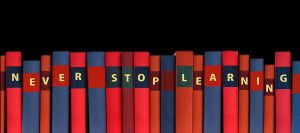Author: Steven J. Cernak
In addition to being a full-time antitrust attorney at Bona Law PC, I have taught at least one antitrust course every year since 2009 at three different Michigan law schools. As I prepare for another semester, I had reason to return to an article I wrote six years ago. There, I captured my thoughts on the practical benefits to all future lawyers, not just members of the antitrust community, from taking a well-taught antitrust course. In that article — Antitrust Courses Can Teach Valuable Practical Skills – If Taught Well — I made the case for using hypothetical materials to teach both the law and practical counseling and advocacy skills that any new lawyer can use.
In the intervening six years, I have continued that practice in many seminar and survey courses, always using my Antitrust Simulations book and its hypothetical materials based on some of my past antitrust matters. I still think my original conclusions in the article are valid; however, other aspects of teaching antitrust law have changed, as I explain below.
Six years ago, one of my premises was that law schools, under pressure from employers and accreditation bodies to graduate students more “practice-ready,” would be incorporating experiential learning in many more of their classes. Based on comments from my admittedly small sample of students, that trend seems to have slowed. At least at schools where the majority of the faculty are not current or former practitioners, students have commented that my class is the most practical one they have taken. It appears that experiential learning is still being outsourced exclusively to legal practice classes and clinics. If so, that is too bad, for the reasons explained in my original article — after all, most graduates even from top schools will spend their careers counseling clients and meeting with regulators, not writing law review articles and clerking for justices.
One unfortunate trend among some students is what I call “the Google-ization of legal thinking.” I refer to the idea that all legal matters can be easily solved by simple application of rules or black letter law or that a perfectly formed query will spit back “the” answer. Such an attitude is especially troublesome in antitrust where more than a century of shifting caselaw based on short statutes turns most questions outside of naked price fixing into grey areas requiring extended consideration.
I try to counter this tendency in two ways. First, I quote Prof. Daniel Crane and his reaction to students who complain he did not teach enough antitrust black letter law: “This is the marker of the student who has not ‘gotten it.’ There is relatively little black letter law in antitrust law. (Some would say there is relatively little law in antitrust law.)”
Second, discussion of the hypothetical material allows the students to see that changing the facts slightly can lead to a different conclusion. For instance, all my classes end up discussing a hypothetical set of facts and whether it adds up to an “agreement” under the antitrust laws. After the students have reviewed the facts, I “poll the jury” and ask a few students which fact was the one that convinced them. I then ask if their opinion would change if that fact were absent or changed. The students then begin to understand that answers to some questions require gathering and evaluating various bits of evidence, not searching for the one right answer.
Another unfortunate trend among still a minority of students is the “Twitter-ization of legal thinking.” Here, some students will start from a strongly held premise that can be described in under 280 characters (“all government intervention is bad”; “I don’t like that unfair result so antitrust law should change it”) and then reason backwards so that all matters are consistent with that premise. This development seems to be correlated with, and perhaps caused by, the increased amount of questionable “anti-trust” coverage in the general media in the last six years. Here, discussion of the hypothetical material and a polling of the class (in-person or virtually) can at least show that other students have different opinions and good reasons for them.
One fortunate trend that has remained true since 2009, which I did not emphasize enough in the original article, is how much I learn from teaching and how that helps my antitrust-counseling practice. For instance, that same “agreement” hypothetical discussed above is a lightly-edited version of a real case where my clients were accused of an illegal agreement. The plaintiff’s theory included assertions that evidence of my client telling competitors “we will act independently” were actually subtle head fakes meaning “we agree with you.” When told of the theory, my client said “yeah, if only we were that smart.”
While my client and I dismissed the theory as a conspiracy fantasy, in every class at least some (but never all) students develop the same theory from similar facts. I try to explain that Occam’s Razor — and my decades of experience of hanging around businesspeople — make it much more likely that businesspeople have neither the time nor the smarts to pull off such an elaborate ruse. But years of teaching this hypothetical, eventually, taught me two lessons: my intuition might not always be right and sometimes some actors might be able to pull off such a conspiracy; and, even if I am right, if enough members of a jury think such a conspiracy is possible, my clients would be in trouble. As a result, I have come to emphasize potential “misimpressions” of any actions in my counseling more than in the past.
Just more proof that antitrust classes, properly taught, can teach practical lessons, both to new and more seasoned attorneys.
Image by Gerd Altmann from Pixabay
 The Antitrust Attorney Blog
The Antitrust Attorney Blog



